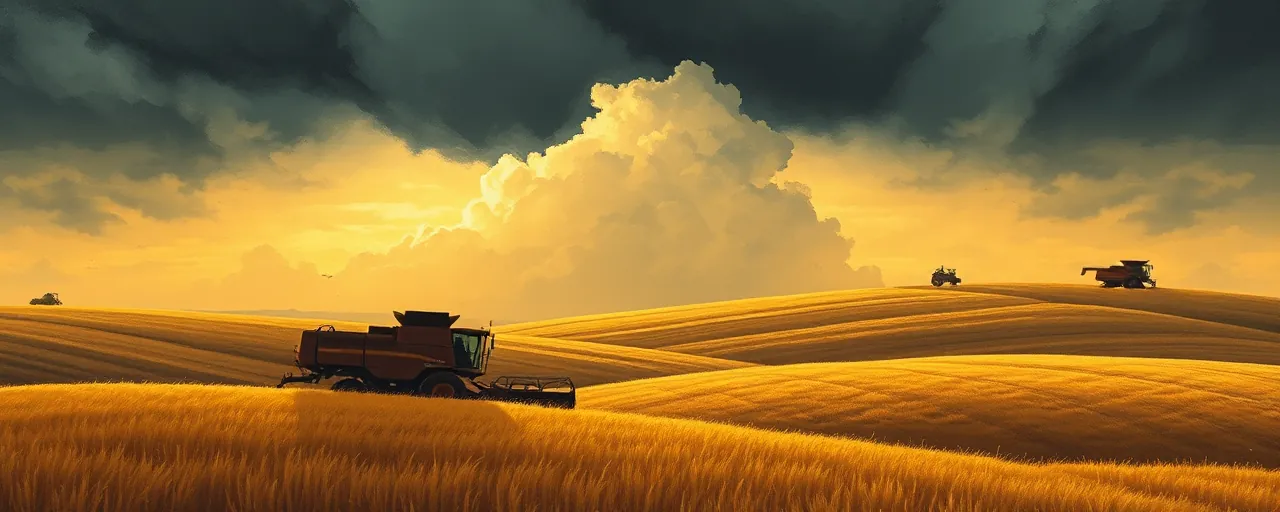A Troubling Shift at the USDA
America’s farmers, the heartbeat of our nation’s food supply, stand at a crossroads. The U.S. Department of Agriculture, long a lifeline for rural communities, welcomed a new slate of leaders on April 14, 2025, tasked with steering the agency under President Trump’s vision. Secretary Brooke Rollins heralded these appointees as champions of farmers, promising to slash regulatory burdens and prioritize rural prosperity. Yet, a closer look reveals a different story, one that raises alarms for those who care about the future of agriculture and the families who depend on it.
These appointments, spanning critical roles from the Farm Service Agency to the Natural Resource Conservation Service, signal a pivot toward policies that favor corporate interests and short-term gains over the long-term stability of family farms. For farmers grappling with climate unpredictability, market swings, and rising costs, the USDA’s new direction feels like a betrayal of the agency’s historic mission to support those who feed us. The emphasis on deregulation and a narrow view of prosperity threatens to unravel decades of progress in building resilient rural economies.
What’s at stake isn’t just policy jargon; it’s the livelihoods of millions. From Iowa’s cornfields to California’s orchards, farmers need a USDA that fights for them, not one that dismantles the safety nets they rely on. This moment demands a fierce recommitment to policies that uplift rural America, protect our environment, and ensure every farmer has a fair shot.
Deregulation Over Support
The USDA’s new leadership, including figures like Bill Beam at the Farm Service Agency and Aubrey Bettencourt at the Natural Resource Conservation Service, arrives with a mandate to roll back regulations. Supporters argue this will free farmers from bureaucratic red tape, pointing to past complaints about compliance costs. But this narrative glosses over a harsh reality: regulations often exist to protect farmers from market failures and environmental collapse. Stripping them away risks leaving producers vulnerable to volatile commodity prices and unchecked corporate consolidation.
Take the Farm Service Agency, a critical lifeline for farmers facing disaster or debt. Since 2021, it has delivered $6.6 billion for livestock losses and $2.74 billion in debt relief, keeping family farms afloat during wildfires, droughts, and market disruptions. These programs, bolstered by the Inflation Reduction Act, reflect a commitment to equity and resilience. Yet, the new appointees’ focus on deregulation suggests a retreat from such support, favoring policies that benefit agribusiness giants over small-scale producers.
The push to dismantle environmental programs is equally troubling. The Natural Resource Conservation Service, under Bettencourt’s leadership, oversees the Conservation Reserve Program, which pays farmers to retire sensitive land, preserving soil and wildlife on 25 million acres. Proposals like those in Project 2025, which call for gutting this program, ignore its proven benefits. Farmers enrolled in these initiatives don’t just protect the land; they gain financial stability to weather tough years. Abandoning these efforts betrays the very people the USDA claims to serve.
Some argue deregulation will unleash innovation, citing the burdens of compliance with food safety rules like the Food Safety Modernization Act. But these standards, set to tighten in 2026, save lives by preventing foodborne illness outbreaks. Farmers have adapted to them, investing in systems that ensure trust in our food supply. Dismantling these protections to cut costs for a few risks public health and the reputation of American agriculture on the global stage.
The USDA’s new path seems to dismiss the complexity of modern farming. Climate change intensifies droughts and floods, while global trade deficits, projected at $49 billion annually, squeeze farmers’ margins. In this reality, slashing support programs and environmental safeguards isn’t freedom; it’s abandonment.
A Vision for Rural Resilience
There’s another way forward, one that honors farmers’ grit and ingenuity while equipping them for a turbulent future. The USDA could double down on programs that work: expanding disaster relief, modernizing farm loans, and investing in climate-smart agriculture. The Rural Energy for America Program, for instance, has funded solar arrays and energy-efficient equipment, saving farmers thousands while cutting emissions. Since 2021, $3 billion in clean energy projects have transformed rural landscapes, creating jobs and new revenue streams.
Equity must also remain central. The FSA’s $300 million for underserved farmers and targeted support for specialty crops have leveled the playing field, empowering communities long overlooked. These efforts aren’t handouts; they’re investments in a diverse, vibrant agricultural sector that feeds a growing nation. A USDA that prioritizes these initiatives would signal to farmers that their government stands with them, not with corporate boardrooms.
Advocates for dismantling federal support often claim the market will sort things out. But farmers know better. Left to the whims of global trade wars and corporate monopolies, small producers struggle to compete. The USDA’s role isn’t to step back but to step up, ensuring fair markets, stable incomes, and a healthy environment for generations to come.
Reclaiming the USDA’s Mission
America’s farmers deserve a USDA that fights as hard as they do. The new appointees, with their focus on slashing regulations and narrowing priorities, risk steering the agency away from its core purpose: to serve the people who feed us. Rural communities aren’t asking for a free ride; they’re asking for policies that match the scale of their challenges, from climate crises to economic uncertainty.
The path ahead requires courage to protect what works and vision to build what’s needed. Strengthening safety nets, investing in sustainable practices, and championing equity will ensure that farming remains a way of life, not a relic of the past. For the sake of our food, our land, and our future, the USDA must rise to meet this moment, not retreat from it.
